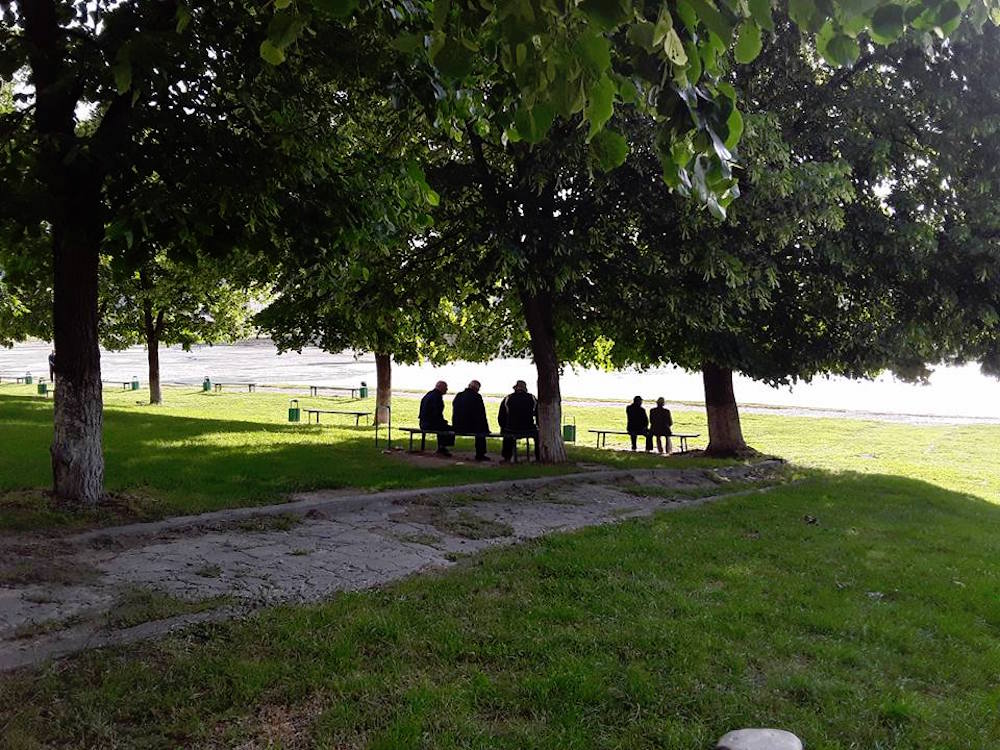South Ossetian public outraged over case of police violence and indifference of state

Last month, police officers from the South Ossetian Ministry of Internal Affairs severely beat a number of local residents while trying to track down an escaped convict.
Although the public was outraged, there has yet to be any official reaction to the incident.
What happened
Suspected criminal Andrey Kabisov, accused of kidnapping and extortion, escaped on 30 July 2018 from a temporary detention centre.
The Ministry of Internal Affairs reported that Kabisov had dug a hole through a wall in his cell and slipped outside. They blamed the employees of the detention centre for his escape, who were later beaten while the police officers tried to clarify the circumstances surrounding Kabisov’s escape. The prison guards received injuries of varying severity.
Kabisov’s cellmate who remained in the cell was also beaten.
The police officers went in search of the criminal at a restaurant called Podmoskove where they beat several other people. They assumed that these individuals might have information pertaining to Kabisov’s whereabouts as they had criminal pasts.
One of the restaurant victims was Sergey Chochiev, who was beaten so badly that his ribs were broken and a lung damaged. He was sent to hospital.
The former adviser to the prime minister of South Ossetia, Valery Chochiev, was also beaten.
Witnesses say that the police officers beat anyone who may have been involved in the escape of the convict and said: “We’ll show you who’s boss here!”
One of those beaten by the police officers told JAMnews that no one had been punished.
The individual, who asked to remain anonymous, said that he spoke with both the Minister of Internal Affairs of South Ossetia Igor Naniev and with the head of the criminal police, whose employees were responsible for the beatings:
“I asked: Who will restore justice? Why was I almost made a cripple? Who is guilty? Nobody assumed responsibility.”
None of those who were beaten by the police addressed the court of the prosecutor’s office, and no officials, including President Anatoly Bibilov, have made any official statements.
The Ombudsman and the presidential administration are linked together
Though this case is rather extreme, the situation concerning human rights in South Ossetia has been a pressing topic for a while.
The Institute of the Commissioner for Human Rights has been called upon to handle the human rights situation in the republic. However, the institute does not work as it should, given that the Ombudsman is appointed by the president and accountable to the presidential administration which strips the position of the independence it is meant to enjoy.
The Ombudsman for Human Rights in South Ossetia, Inal Tasoev, was appointed by the former president, and retained his position under the current one.
He claims that he is independent in his decisions and says that he does not need to report to state bodies. Tasoev refrained from making any statements regarding the recent events.
Lawlessness has no nationality
Dozens of public organisations are registered in South Ossetia, though only a handful of human rights organisations. Many NGOs have closed shop after being pressured by law enforcement agencies and an increasingly austere legislation.
Human rights advocate Irina Yanovskaya says that in order to improve the human rights situation, a consultative body on human rights must be created:
“A body must be created that would assist the head of state. It would be important to include representatives of civil society, not just those who currently work for the state and whose professional activities are connected with human rights.”
Local political scientist Timur Tskhurbati says that the arbitrariness and impunity of law enforcement officers lead to tragic consequences:
“Tatunashvili was just recently killed. They didn’t kill him on purpose, but the beating was the reason behind his death. I believe that these are all links in one chain. Lawlessness does not have a nationality.”
South Ossetian expert Roland Kelkhsaev believes that until independent human rights organisations begin operating in the republic, the human rights situation will not improve.



















